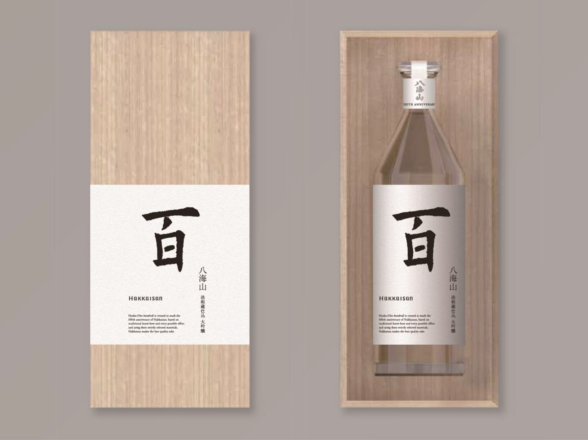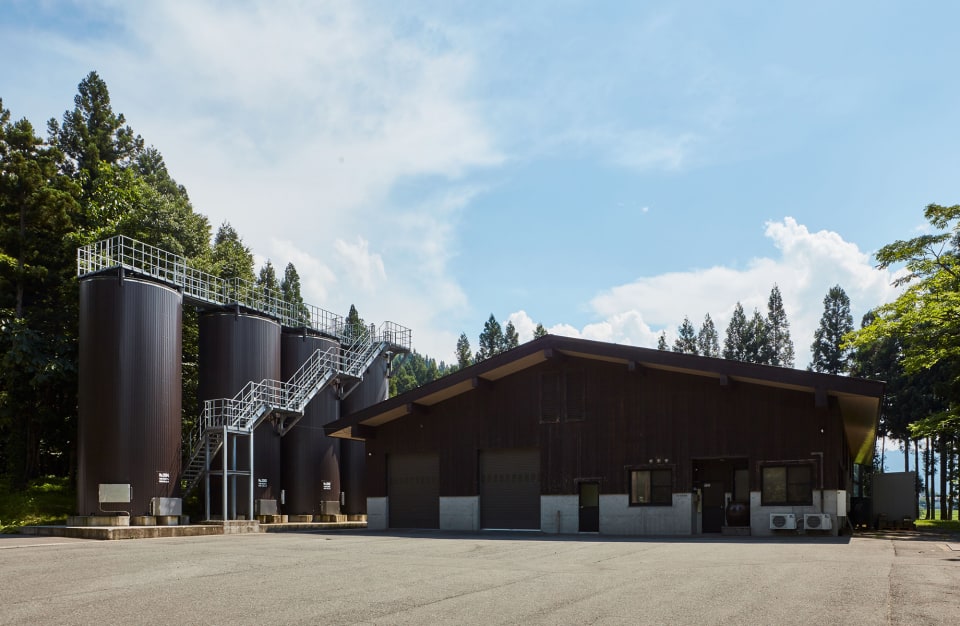Sake powerhouse Hakkaisan rang in its centennial anniversary in 2022, and the celebrations continue this year. At a recent press conference, they announced, among other things, the release of their first-ever grain whisky made primarily from rice.
It turns out Hakkai Jozo has been making rice-based grain whisky at its Fukazawahara Distillery since 2016. And they’re almost ready to release a single grain rice whisky. Like… a real, JSLMA-approved Japanese single grain rice whisky. … a what?
Japanese Rice Whisky
Hakkai Jozo wants to establish rice grain whiskey as an entirely new category of whisky unique to Japan. Scotland has its malt(ed barley)-based Scotch whisky. America has its corn-based bourbon whiskey.
*Japan enters the chat*
Without going into too much detail, Japanese whisky has, until very recently, largely followed Scotch whisky traditions. That means making whisky by malting barley, fermenting, distilling, then aging it in oak casks. They also take a Scottish approach when making grain whisky, usually employing huge continuous stills to produce it in huge volumes.
But, come on! Japan is a country all about rice. Sushi! Sake!
What could be more Japanese than a rice-based whisky? Yes, it’s entirely possible to make whisky from rice. (technically, not just rice, but that’s for a different article)
Rice Whisky… or is it?
I know what you’re thinking. “But Whiskey Richard. Doesn’t rice whisky already exist, even from Japan?” The two labels that come to mind are Kikori and Fukano.
What those brands don’t tell you is their whisky is not whisky per the Japanese legal definition of whisky. They use koji, putting it closer to an aged shochu than whisky in Japan. Whisky, per Japanese law, is explicitly not made using koji. Kikori and Fukano are not sold in Japan at all. Even if it were, they could not call it “whisky.”
This also makes them ineligible for the JSLMA Japanese whisky status. US law (the TTB) allows those bottles to be labeled as whisky simply because they taste like whisky. Japanese law disagrees. Sure, there’s room for argument, but good luck changing Japanese law.
So we must ask: can rice whisky be made without using koji? If the other conditions are met, the end product will qualify as “whisky” per Japanese law, thus also as a JSLMA-approved Japanese grain whisky.
The answer is yes. Suntory released one in 2020. Kiuchi Shuzo is also in this space with Hinomaru Whisky, which uses rice whisky as a component.
That said. Given Hakkai Jozo’s history and power with sake, I’d say they are far better positioned to establish Japanese rice whisky as a thing.
Fukazawahara Distillery
The what distillery?
How does one of Japan’s leading sake makers from Niigata Prefecture, in both domestic and export markets, keep something like an entire rice whisky operation under the radar?
They didn’t tell anyone. Uonuma City’s Fukuzawahara Distillery does not appear in the most comprehensive overview of the Japanese whisky market, the Japanese Whisky Yearbook. I’m guessing that even internally, not many people knew. (Back in 2018, upon learning of the whisky license, I contacted their current global brand ambassador for more detail. He said he was not involved with whisky at all.)
One place you will find it–perhaps the only place you’ll find the distillery even listed up until now–is on the Japan Distillery Map. As much as Hakkai Jozo might have liked to keep it 100% under wraps, National Tax Agency-issued licenses for new whisky distilleries are a matter of public record.
You’d have to be genuinely eagle-eyed to spot the bottle of “Uonuma Whisky” that the company brought to last year’s whisky festival in Tokyo.
My initial hunch was that Hakkai Jozo obtained this whisky license for their Uonuma distillery as a training ground. When the company’s Niseko Distillery was announced, that hunch made sense.
… that hunch was wrong.
Malt in Niseko, Rice in Uonuma
During the press conference, Hakkai Jozo indicated that in the future, their Niseko Distillery will continue making malt whisky, and the Fukazawahara Distillery will continue making rice whiskey. Note the different spellings.
It should be interesting to see how Hakkai Jozo brings the two together. To my knowledge, the only other company in Japan that has both a malt whisky-exclusive distillery (Yamazaki) and a rice whisky-exclusive distillery (Osumi) is Suntory.
Two more things
Hakkai Jozo also presented its new corporate logo at the press conference:

Note that this is the new corporate logo — not a rebranding of Hakkaisan sake itself — and it gives an impression of their global ambitions. The conference also featured a talk show with Hakkai Jozo partner Brooklyn Kura‘s Brian Polen and global brand ambassador Timothy Sullivan, addressing Brooklyn Kura’s plans.
Another big reveal was the Hakkaisan centennial anniversary release, a daiginjo dubbed “百” (100). Rice milled to 25% of its original volume forms the base for this daiginjo aged for six years in their famed low-temperature snow warehouse. Weighing in at 18% abv, the (likely very) limited release will set you back 132,000 yen per 750ml bottle. That release is slated for September 20 in liquor stores and department stores.

Hi there! I created and run nomunication.jp. I’ve lived in Tokyo since 2008, and I am a certified Shochu Kikisake-shi/Shochu Sommelier (焼酎唎酒師), Cocktail Professor (カクテル検定1級), and I hold Whisky Kentei Levels 3 and JW (ウイスキー検定3級・JW級). I also sit on the Executive Committees for the Tokyo Whisky & Spirits Competition and Japanese Whisky Day. Click here for more details about me and this site. Kampai!

